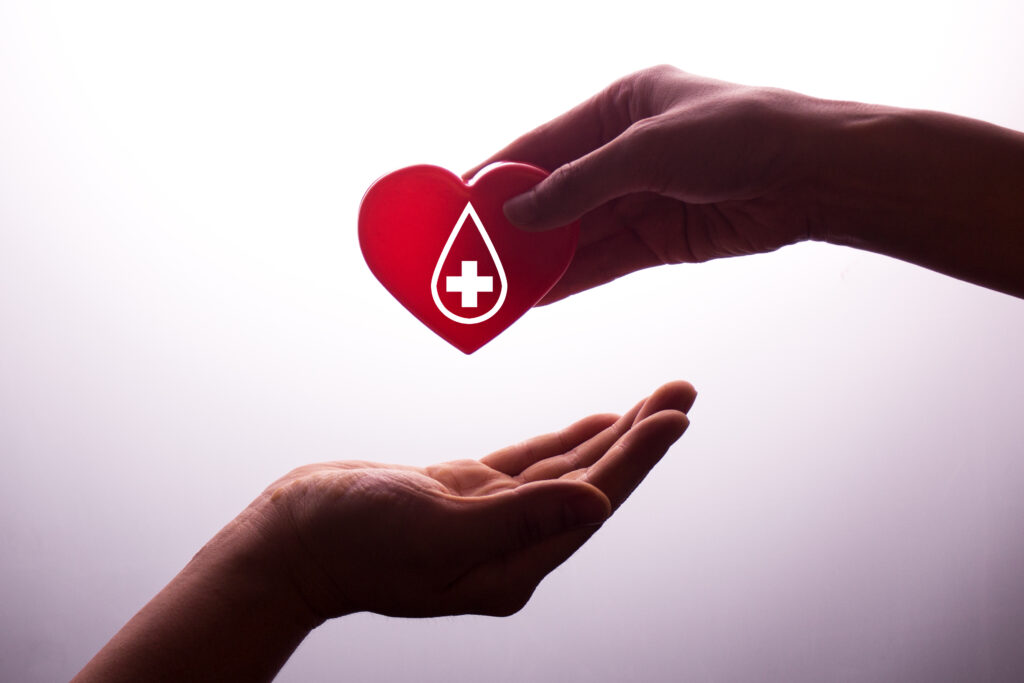
The Critical Need of Donating Blood: How You Can Help During the COVID-19 Crisis

Written by Aileen Monahan, Associate, Capalino
As the coronavirus pandemic continues to impact many facets of our everyday lives, we are encouraged by the outpouring of generosity in our communities and those looking to support one another in dealing with these challenges, particularly in our nation’s healthcare system. Now more than ever, the need for blood supplies is extremely critical.
What is the Current Need and How Has the Coronavirus Affected Blood Supply?
Our nation’s blood supply is facing an unprecedented shortage due to the coronavirus pandemic. As many of us are practicing social distancing and isolating in our homes, blood drives across the nation are being cancelled. According to the American Red Cross, more than 7,000 blood drives have been cancelled, meaning 200,000 blood donations can no longer be made. These public blood drives produce about 80% of the nation’s blood supply.
The coronavirus has exacerbated our nation’s need to maintain a sufficient blood supply to meet the increased demand in hospitals. Blood supplies have a limited shelf life and must constantly be replenished. A unit of red blood cells has a 42 day shelf life, while platelets can only last for five days. These blood products are crucial to maintaining community health in this crisis.
Is Giving Blood Safe?
Fortunately, almost all healthy individuals can still give blood. Since the coronavirus is a respiratory infection, there is no evidence to support it is transmissible by blood transfusion. The Surgeon General has reaffirmed that those who are healthy are encouraged to give blood as soon as possible in order to prevent potential blood shortages. In response to the crisis, the Red Cross has implemented increased precautionary measures to ensure the health and safety of donors and staff. These include conducting donor physicals to ensure they are healthy, providing hand sanitizer to use before and after donations, spacing beds to follow social distancing practices, and enhanced disinfecting of all surfaces and equipment. Red Cross employees, as well as staff at other centers, are trained to routinely wipe down donor-touched areas, wear gloves and change gloves with each donor, use sterile collection sets for every donation, and prepare the arm for donation with an aseptic scrub. For more information, please visit their website here.
How Can I Help?
If you are feeling healthy and well, please consider donating blood. There are many accredited blood donation centers that are taking appointments. Type O negative is the most in-demand blood type for its versatility in an emergency, but all blood types are accepted.
If you have recovered from COVID-19, your plasma could potentially be a lifesaving treatment to others. This convalescent plasma from those who have recovered from the virus contains specific antibodies to COVID-19 that could help current patients. To learn more about donating convalescent plasma, please visit the Red Cross’ website.
Changes to Blood Donation Guidelines
The FDA has recently revised its guidelines on blood donation from gay and bisexual men. The new guidelines shorten the deferral period for sexually active gay and bisexual men from 12 months to three months from which they must abstain from same-sex sexual activity before they are eligible to donate blood. These restrictions on gay blood donors were first implemented in 1983 during the AIDS epidemic in order to prevent HIV from getting into the blood supply, and there have been subsequent changes to the guidelines since. Additional policy changes in the future could further increase the size of the eligible donor pool.
Where Can I Donate?
New York Blood Center operates several donation centers across New York City with enhanced health and safety measures and extended hours. Please contact the donation center to make an appointment.
Upper East Side Donor Center
310 East 67th Street
New York, NY 10065
Grand Central Donor Center
200 Park Avenue Lobby Level
New York, NY 10017
Port Authority Midtown Donor Center
625 8th Avenue @ W 41st Street, South Wing
New York, NY 10018
Staten Island Donor Center
2791 Richmond Avenue
Staten Island, NY 10314
Additionally, there are mobile drives taking place across the city each day. You can search schedules of mobile drive opportunities here.
If you have recovered from COVID-19 and would like to donate plasma, please complete the New York Blood Center Donation Form.
It’s more important than ever for individuals, companies, and nonprofits to find creative ways to assist those in need. We can help. Contact us at jeanne@nullcapalino.com or 212.616.5832.



